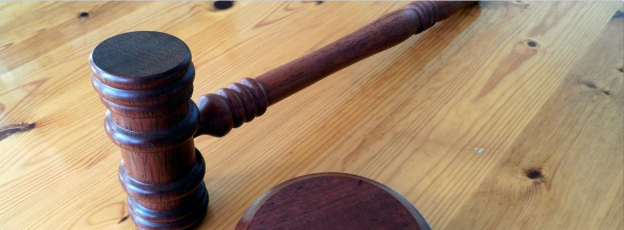Summary
From time to time we can question whether justice exists. The people of Malachi’s day certainly questioned God’s judgement. They lived in a time in which the priests failed to teach God’s love, and God’s promises symbolised in the rebuilt temple. The people did not follow God’s commands, and so corruption was rife, religion was ritual, morality lax, and justice was absent.
In Malachi’s fifth message (Malachi 2:17-3:5), God answers their complaint of a lack of justice by promising the sending of the Messiah. The Messiah will bring refinement and judgement on all who reject God.
Our passage explained
v17
Firstly we see Malachi highlight the questioning of God’s justice. In verse 17 we read that the complaints of the people “wearied” God with two claims of his injustice. They claim that “Everyone who does evil is good in the sight of the LORD, and he delights in them” (that is, why do the wicked prosper and the righteous suffer). Secondly, they ask “Where is the God of justice?”.
In their minds, God had abandoned them: he did not distinguish between good and evil deeds, and was allowing injustice to occur. In other words, God should hurry up and judge the nations, and put his people back in their rightful “top dog” place.
v1-3
To answer the complaint of injustice, we see God promise the arrival of the Messiah. In chapter 3, verse 1, God promises “I send my messenger, and he will prepare the way before me”, who is John the Baptist (Matthew 11:10). The messenger prepares the way for the arrival of the Messiah, the God of justice whom they sought, who “will suddenly come to his temple”.
The arrival of Jesus, the Messiah, promises to bring refinement of God’s people. The people will be severely purified, with Malachi saying in v.2, “who can endure the day of his coming, and who can stand when he appears?” Jesus’ refinement will be like fullers’ soap, which was a harsh soap used to cleanse stains from clothes (before janola).
Jesus’ refinement would also be like a refiner’s fire (v.2). A refiner’s fire heats metal to a very high temperature, removing impurities from metals to purify them. In verse 3, this idea is extended to the offerings presented by the priests, where it says the Messiah “will purify the sons of Levi and refine them like gold and silver, and they will bring offerings in righteousness to the LORD.”
v4-5
The purification of those responsible for worship will ensure “the offering of Judah and Jerusalem will be pleasing to the LORD as in the days of old and as in former years” (v.4). While severe, the refinement would ensure that worship was offered to God in the way it should be, and accepted by him, as the people are led properly in worship once again.
While for many the coming of the Messiah would bring refinement, for others the outcome was judgement. Popular expectation in Malachi’s day was that God’s return would bring judgement on the nations, but God turns this expectation on its head. “Then I will draw near to you for judgment” (v.5) says God; not against the nations but against the people who questioned his justice.
Not only will God draw near to judge, he will himself bear witness between the good and evil of the people (see the first complaint in 2:17). God will “witness against” (v.5) those who violate his moral law expressed in the covenant at Sinai. All those who do not fear God will feel the judgement of God upon them through the Messiah.
Our passage applied
When we are tempted to join with the people of Malachi’s day and ask “where is God? Where is justice? Does God still care when bad people profit from evil deeds?” this passage gives us an answer. God does care, and has brought justice to us through Jesus, our Messiah, who reveals it fully to us.
God does not let injustice stand, but sent Jesus to take the penalty and wrath for our own sins and injustices, that we might be his children. And as his children, he disciplines (Hebrews 12:7-11) and refines us to purify us and our worship. God’s people were called to be a kingdom of priests (Exodus 19:6), and we are called and equipped for the same duty (1 Peter 2:5).
But Jesus also came to bring judgement (Matthew 10:34). Everyone who rejects Jesus’ message and instead prefers to dwell in their sins and “does not believe is condemned already” (1 John 3:18). When Jesus returns, he will bring judgement on all those who do not believe (Jude 14-15).
God does care about justice. God cares about good and evil. God showed his concern for justice by sending Jesus, and will execute final judgement when Jesus returns. We can be thankful that God cares about justice, and instead of giving us the justice we deserve, gives us mercy through Jesus, so we can offer him pleasing worship.
Resources
Questions? Please contact us. Inspired? Come and worship with us on Sundays.

